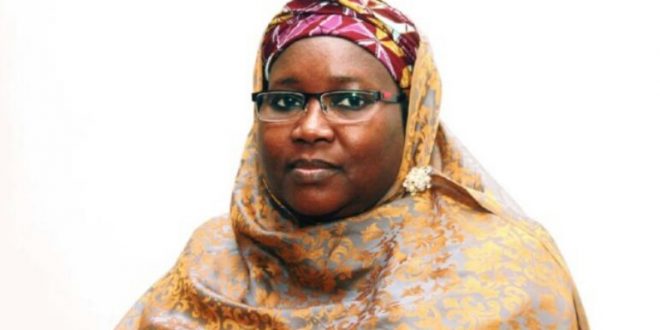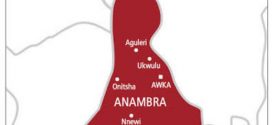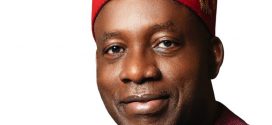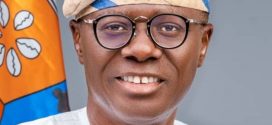President Muhammadu Buhari has promised severally in the lead up to the 2019 general elections, that he would ensure a free, fair, transparent and credible process, and defend the right of the people to choose. But the appointment, literally on the eve of the election of a niece of his, Mrs Amina Zakari as the INEC Commissioner in charge of the National Results Collation Centre has placed a big question mark on that declaration. The attempt to deny any form of blood relation or filial connection between the President and the INEC official is grossly unconvincing. It has deepened suspicions, and exposed the incompetence and insensitivity of those who proposed her for that position in the first place. INEC faces an integrity challenge. It must address it.
Ms Zakari is however, not new to this controversy. For the benefit of those who may not be in the know, yes, she was appointed as INEC Commissioner by President Goodluck Jonathan in July 2010, and yes, yes and yes, she was recommended to him by President Muhammadu Buhari. President Jonathan is very liberal and open-minded about his understanding of democracy and politics. He is the type of person who would ask his opponent to recommend a person to work for him. Weeks to the election of 2015, he was told to clean up INEC and get rid of a certain “Northern cabal” that had seized control of the institution. He bluntly refused. He insisted that the institution should be allowed to function. He, and I probably risk a breach of confidentiality here, was even advised to choose an Igbo man as INEC chair to protect his interest and to reduce the influence of Northerners in INEC. He didn’t listen. He was told that the best way to win election in Nigeria is to put his own people in the electoral commission. He argued otherwise. He wanted to carry every Nigerian along. He paid a heavy price for his nationalism.
The appointment of Mrs Zakari as the head of the INEC collation centre is in keeping with that thinking that in politics, the “end justifies the means”, and that you are better off with “your own people” – a sad reflection of the poor state of our politics and polity, absolutely deplorable. That is why Nigerians are complaining about the Zakari appointment. They can see through what they perceive to be a game. Amina Zakari like Peter the disciple, may have denied President Buhari three times before the cock of election crows, but nobody is convinced. We should step back a little in time to understand why this is the case. When Ms Zakari was appointed acting chair of INEC in 2015, there were similar protests that a conflict of interest was involved.
The outgoing Professor Attahiru Jega recommended someone else as his successor. But the government of the day insisted on Ms. Zakari, and throughout the period that she was in charge, the opposition kept protesting that she had issues of conflict of interest. Professor Mahmud Yakubu was later appointed the substantive chair of INEC, but Ms Zakari again became the issue during the Ekiti and Osun Gubernatorial elections. The opposition complained bitterly that those two elections were rigged. They didn’t want the President’s niece as the head of electoral operations and logistics! She was later moved to the Health and Welfare section. Everyone was relieved. Thus, Mrs Zakari role and presence in INEC under the Buhari government has always been controversial, on account of her reported closeness to the President. In Africa, family relationships count a lot.
Bringing her back to the National Collation Centre is clearly insensitive. The politics of proximity remains one of the major stumbling blocks to development and progress in African countries. On the grounds of religion, ethnicity and filial connections, persons compromise ethical considerations and the rule of law in order to serve primordial interests. Under President Buhari, this politics has been foregrounded and stoutly defended to the consternation of even his own supporters, including as we are now aware, through a leaked audio tape, Minister Rotimi Amaechi who managed his campaign in 2015 and is now doing same in 2019. Amaechi may sound treacherous but he seems to be a truth-soldier. The explanation that Mrs Zakari’s job is simply to provide welfare and logistics at the Collation centre is dishonest. Those who speak for government must learn the first rule of the job: they must learn to think before they open their mouths. Too many persons open their mouths these days, to express opinions on public issues and you wonder whether or not they have a brain. The intervention of the Presidency in the controversy is in my considered opinion, unwise.
The electoral body is supposed to be an independent body. Its internal affairs should not be managed by the Presidency. By rushing to disown Mrs Zakari, the Presidency betrayed its own emotions. INEC is also unnecessarily defensive. It has an obligation to be seen to be above board. Amina Zakari’s statements in the face of public outcry conveys an impression of desperation and raises questions. Must she be the commissioner in charge of the Collation Centre? Should we have two Northerners manning the two most strategic departments in the 2019 election? Is this not a further confirmation of extant complaints about nepotism, cronyism and favouritism? Nobody has questioned Ms Zakari’s competence – she is a pharmacist, and I believe she has an NYSC certificate – she is even a Princess of the Caliphate but is she the only person who can collate results? Certainly there must be other ways in which she can be useful, and given the controversy that has emerged, the INEC Chairman, Professor Mahmoud Yakubu should re-assign her without any further delay. It is the only intelligent to do to put an end to the suspicions.
He should do so to protect the integrity of the 2019 electoral process. The doubts that have been raised about Mrs Zakari’s present deployment will not go away. Even if she is subjected to a DNA test and Nigerians are told that she is not related in any way to President Buhari, nobody will believe it. Even if all she does at that collation centre is to attend to the welfare of local and international observers, nobody will agree. INEC has unwittingly created a credibility and integrity problem for itself, more so as this promises to be one of the most keenly contested elections in Nigerian history. It is definitely not an election that can be collated by anyone remotely believed to be close to the incumbent President. There are just too many family connection stories around the chosen collator. And the matter is as follows: One, even the Presidency through Garba Shehu has admitted that there is indeed an inter-marriage relationship between the President and Amina Zakari. Two: her brother – same father, same mother, is said to be the current Minister of Water Resources. Three: when President Buhari was Chairman of the Petroleum Trust Fund, she was a consultant to the PTF. Her elder brother, now the Emir of Kazaure was even a legal adviser to Buhari’s PTF, appointed by Buhari himself. These facts alone rob her of her alleged neutrality. It is simple common sense: Ms Zakari’s talents can be put to less controversial use.
And it is important that INEC listens and accommodates the public outcry around and about Ms Amina Zakari. The bigger argument is about the legitimacy of the entire electoral process. If she remains as the head of the national collation centre, the legitimacy of the election would have been destroyed in the event of Buhari achieving his four plus four ambition. INEC will be accused and rightly so, of match-fixing. I have made this point before now, and I repeat it: the international community is watching, no one should be under the illusion that we are an island unto ourselves. President Muhammadu Buhari has been accused before now of cronyism, and a systematic re-Northernisation of Nigeria, such information as his niece or family relation by whatever label, being appointed the country’s collation officer for the 2019 elections worsens the narrative.
I see Ms. Zakari is tempted to defend her integrity, which is natural, since she is being accused of an offence she is yet to commit. But she should be reminded that Nigeria’s 2019 general election is not an academic exercise. It is a big battle for the soul and future of Nigeria. She needs not turn herself into an issue, and INEC does not need the stain, and she doesn’t need the baggage. To ignore public opinion, an important component of the democratic architecture, is counter-productive for all parties concerned. Her position, let another take.
 Hottestgistnaija.com
Hottestgistnaija.com





